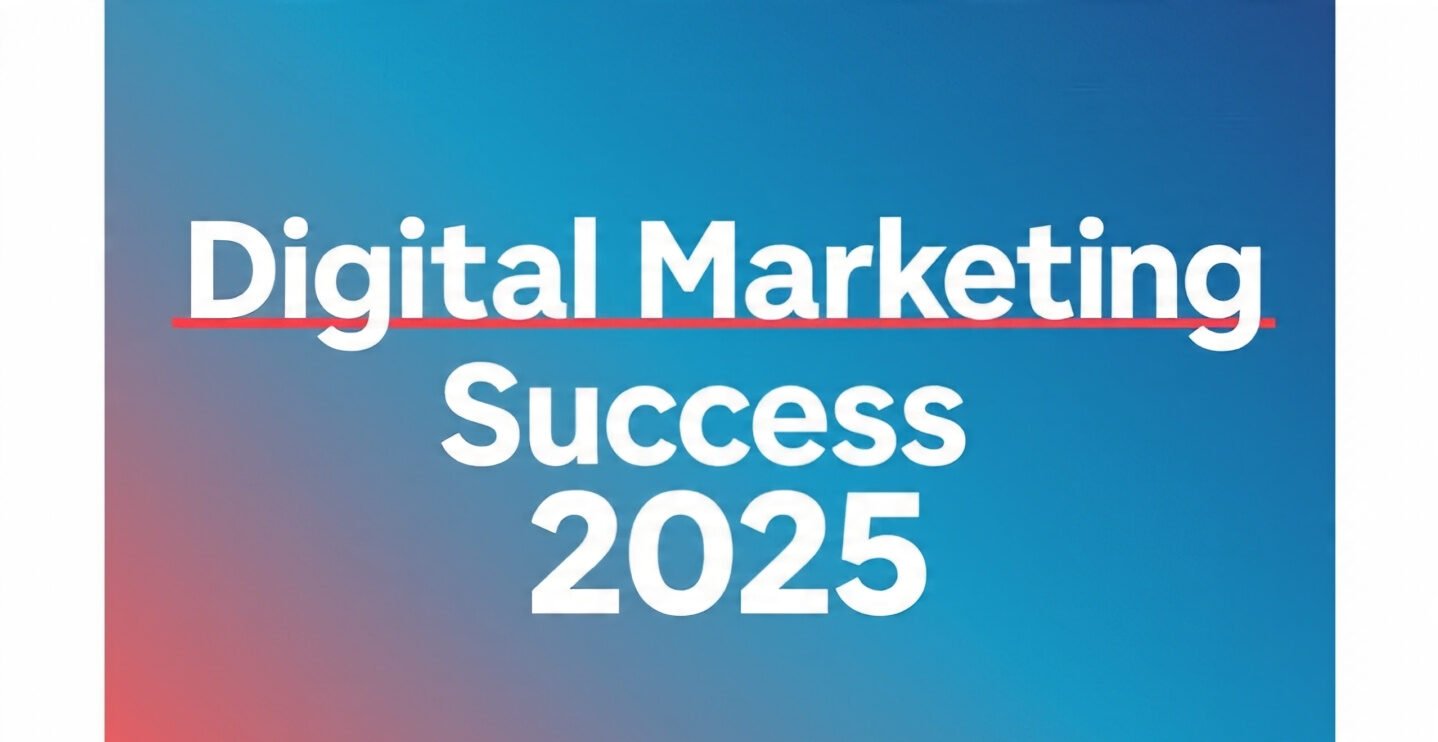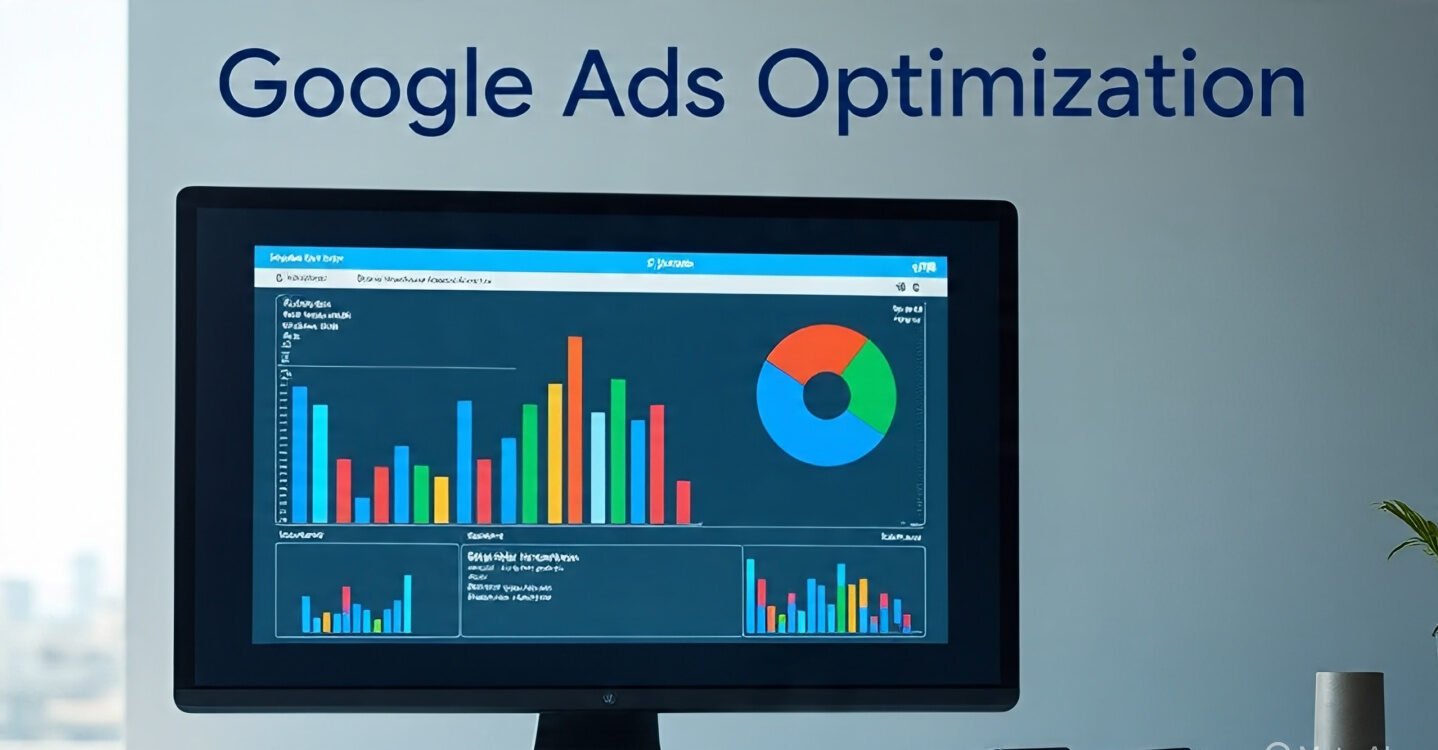
In today’s rapidly evolving digital landscape, digital marketing has become the cornerstone of business success. As we navigate through 2025, companies that master the art of online marketing are not just surviving—they’re thriving in ways their competitors can only dream of. The digital revolution has fundamentally transformed how consumers discover, engage with, and purchase from brands, making it essential for businesses to adapt their marketing strategies accordingly.
Digital marketing success is no longer a luxury reserved for tech-savvy corporations; it’s a necessity for businesses of all sizes. Whether you’re a startup founder launching your first product, a small business owner looking to expand your reach, or a marketing professional seeking to enhance your skills, the intricacies of modern digital marketing strategies are crucial for achieving sustainable growth.
The year 2025 presents unique challenges and unprecedented opportunities. With artificial intelligence reshaping search algorithms, privacy regulations becoming more stringent, and consumer behavior continuing to evolve, traditional marketing approaches are quickly becoming obsolete. This comprehensive guide will equip you with the knowledge, tools, and strategies needed to navigate these complexities and build a robust digital marketing presence that drives real results.
From search engine optimization and content marketing to social media advertising and conversion rate optimization, we’ll explore every facet of modern digital marketing. You’ll discover proven techniques that industry leaders use to dominate their markets, along with actionable insights you can implement immediately to boost your online marketing performance.
Digital Marketing Landscape in 2025
The Evolution of Consumer Behavior
The digital consumer of 2025 is markedly different from previous generations. Today’s customers are more informed, more selective, and more demanding than ever before. They expect personalized experiences, instant gratification, and seamless interactions across all digital touchpoints. Understanding these shifting expectations is fundamental to crafting effective digital marketing campaigns.
Online marketing success now hinges on your ability to meet customers where they are, when they’re ready to engage. This means developing a deep understanding of customer journeys, identifying key touchpoints, and optimizing each interaction to provide maximum value. Modern consumers research extensively before making purchases, often consulting multiple sources and comparing options across various platforms.
Key Technologies Shaping Digital Marketing
Artificial intelligence and machine learning have revolutionized how we approach digital marketing. These technologies enable more sophisticated targeting, personalized content delivery, and predictive analytics that help marketers anticipate consumer needs. Marketing automation tools now offer unprecedented levels of customization, allowing businesses to create highly targeted campaigns that resonate with specific audience segments.
Voice search optimization has emerged as a critical component of SEO strategy, with more consumers using voice-activated devices to find products and services. This shift requires marketers to optimize content for conversational queries and long-tail keywords that mirror natural speech patterns.
Search Engine Optimization: The Foundation of Digital Success
Technical SEO Fundamentals
Search engine optimization remains the backbone of successful digital marketing strategies. In 2025, technical SEO has become increasingly sophisticated, requiring a deep understanding of Core Web Vitals, mobile-first indexing, and structured data implementation. SEO optimization is no longer just about keywords—it’s about creating a technically sound website that provides exceptional user experiences.
Page speed optimization has become paramount, with Google prioritizing fast-loading websites in search results. Implementing proper caching mechanisms, optimizing images, and minimizing code are essential technical SEO practices that directly impact rankings and user satisfaction.
Content Optimization Strategies
Content marketing and SEO work hand in hand to drive organic visibility. Creating high-quality, relevant content that addresses user intent is crucial for search engine optimization success. This involves conducting thorough keyword research, understanding search intent, and crafting content that provides genuine value to your target audience.
Keyword optimization should feel natural and serve the reader first. The days of keyword stuffing are long gone; modern SEO rewards content that seamlessly integrates target keywords while maintaining readability and engagement. Long-form content that comprehensively covers topics tends to perform better in search results, as it provides more opportunities to naturally incorporate related keywords and demonstrate expertise.
Content Marketing That Converts
Developing a Content Strategy
Effective content marketing begins with a well-defined strategy that aligns with your business objectives and target audience needs. Digital marketing success depends on creating content that not only attracts visitors but also guides them through the customer journey toward conversion. This requires understanding your audience’s pain points, preferences, and content consumption habits.
Content creation should be driven by data and insights rather than assumptions. Analyzing competitor content, monitoring industry trends, and gathering customer feedback are essential steps in developing content that resonates with your target market. Successful content marketing campaigns often combine various formats, including blog posts, videos, infographics, podcasts, and interactive content.
Distribution and Amplification
Creating great content is only half the battle; effective distribution is equally important for digital marketing success. Social media marketing plays a crucial role in content amplification, allowing you to reach broader audiences and encourage engagement. Different platforms require tailored approaches, with LinkedIn favoring professional content, Instagram emphasizing visual storytelling, and Twitter facilitating real-time conversations.
Email marketing remains one of the most effective channels for content distribution, offering direct access to engaged subscribers. Building and nurturing email lists through valuable content offerings creates opportunities for ongoing engagement and relationship building.
Social Media Marketing Mastery

Platform-Specific Strategies
Social media marketing in 2025 requires a nuanced understanding of each platform’s unique characteristics and user behaviors. Facebook marketing has evolved to prioritize authentic engagement and community building, making it essential to focus on creating content that sparks meaningful conversations rather than simply promoting products or services.
Instagram marketing continues to be visual-first, but the platform’s algorithm now favors content that generates genuine engagement over purely aesthetic posts. Stories, Reels, and IGTV offer diverse formats for reaching audiences, each requiring different content strategies and optimization approaches.
Paid Social Media Advertising
Digital advertising on social platforms offers unparalleled targeting capabilities, allowing marketers to reach highly specific audience segments based on demographics, interests, behaviors, and custom criteria. Social media advertising success depends on creating compelling ad creative, optimizing targeting parameters, and continuously testing and refining campaigns.
PPC advertising on social platforms requires careful budget management and performance monitoring. Understanding key metrics such as cost per click, conversion rates, and return on ad spend helps optimize campaigns for maximum effectiveness and ROI.
Email Marketing Excellence
Building and Segmenting Lists
Email marketing remains one of the highest-ROI digital marketing channels when executed properly. Building quality email lists through lead magnets, content upgrades, and strategic opt-in opportunities creates valuable assets for ongoing customer communication. Lead generation through email signup forms should offer clear value propositions that motivate users to share their contact information.
List segmentation enables more personalized and relevant email campaigns. Dividing subscribers based on demographics, behavior, purchase history, and engagement levels allows for targeted messaging that resonates with specific audience segments.
Automation and Personalization
Marketing automation has transformed email marketing from a manual, time-intensive process to a sophisticated system of triggered communications. Welcome series, abandoned cart emails, post-purchase follow-ups, and re-engagement campaigns can all be automated while maintaining personalization and relevance.
Personalization goes beyond simply including the recipient’s name in the subject line. Dynamic content, product recommendations based on browsing history, and behavioral triggers create more engaging email experiences that drive higher open rates, click-through rates, and conversions.
Pay-Per-Click Advertising Strategies
Google Ads Optimization

PPC advertising through Google Ads remains a cornerstone of digital marketing strategies for many businesses. Effective Google Ads campaigns require thorough keyword research, compelling ad copy, and strategic bid management. Understanding match types, negative keywords, and quality score optimization helps maximize ad performance while controlling costs.
Search engine marketing through paid advertising offers immediate visibility for target keywords, making it an excellent complement to organic SEO efforts. Landing page optimization is crucial for PPC success, ensuring that traffic from ads converts at acceptable rates.
Advanced PPC Techniques
Remarketing campaigns allow you to re-engage users who have previously interacted with your website or content. These highly targeted campaigns often achieve better conversion rates and lower costs per acquisition compared to standard display advertising.
Display advertising across the Google Display Network offers extensive reach but requires careful audience targeting and creative optimization. Video advertising on platforms like YouTube has become increasingly important, offering opportunities to engage audiences with rich, multimedia content.
Conversion Rate Optimization
Testing and Analytics
A/B testing is essential for conversion rate optimization, allowing you to compare different versions of web pages, emails, or ads to determine which performs better. Statistical significance ensures that test results are reliable and actionable.
Analytics and data analysis provide insights into user behavior, traffic sources, and conversion paths. Understanding which marketing channels drive the highest-quality traffic helps optimize budget allocation and campaign focus.
Measuring Digital Marketing Success
Key Performance Indicators
Digital marketing analytics enable data-driven decision-making and campaign optimization. Key metrics vary by objective but often include website traffic, lead generation, conversion rates, customer acquisition costs, and lifetime value. ROI measurement helps justify marketing investments and identify the most effective strategies.
Performance tracking requires proper implementation of analytics tools, conversion tracking, and attribution modeling. Understanding the customer journey and how different touchpoints contribute to conversions helps optimize the entire marketing funnel.
Reporting and Optimization
Regular reporting and analysis ensure that digital marketing campaigns remain aligned with business objectives. Monthly and quarterly reviews help identify trends, opportunities, and areas for improvement. Successful online marketing requires continuous optimization based on performance data and changing Market Factors.
Conclusion
Digital marketing success in 2025 requires a comprehensive, integrated approach that combines multiple strategies and channels. From search engine optimization and content marketing to social media advertising and email marketing, each component plays a crucial role in building a strong online presence and driving business growth.
The key to sustainable digital marketing success lies in understanding your audience, creating valuable content, optimizing for performance, and continuously adapting to changing technologies and consumer behaviors. By implementing the strategies outlined in this guide and maintaining a focus on data-driven optimization, businesses can build robust online marketing systems that deliver consistent results.
Remember that digital marketing is an ongoing process, not a one-time effort. Success requires patience, persistence, and a willingness to experiment and learn from both successes and failures. Stay informed about industry trends, continue testing new approaches, and always prioritize providing value to your target audience.



